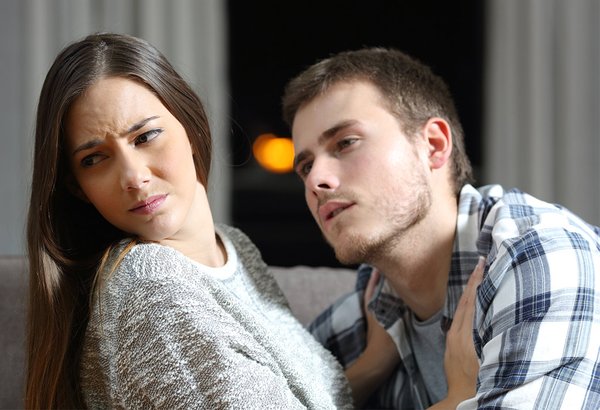Adolescent relationship abuse is more common than we think.
According to the Centers for Disease Control and Prevention, 1 in 4 women report experiencing physical abuse, sexual violence and/or stalking by an intimate partner before age 18. The 2013 study, "Teen Dating Abuse and Harassment in the Digital World," by Janine M. Zweig and Meredith Dank, found that 1 in 4 dating teens is abused or harassed online or through text messages by their partners.
Adolescent relationship abuse is a pattern of repeated acts, during which a person can physically, sexually, or emotionally abuse another person of the same or opposite sex in the context of dating or a similarly defined relationship. Referred to as "teen dating violence" or "intimate partner violence" among adolescents, the emphasis is repeated controlling and abusive behaviors instead of just an isolated event.
MORE BY DR. POLIS: Vaginal irritation in girls: what you need to know
While both sexual and physical assault often occurs in relationship abuse, a defining characteristic is the repetitive pattern of behaviors aimed at maintaining power and control in a relationship. Examples of such behaviors are monitoring a partner's cellphone usage, interfering with contraceptive use (a partner becoming angry when asked to use a condom or removing a condom during sex, tampering with birth control pills, etc.), telling a partner what he or she can wear and with whom they can have a conversation.
Guidance about healthy relationships starting at 11 to 12 years of age, before dating starts, is recommended.
Teens can use a lot of different words to describe dating and romantic relationships, including "talking to, "going out," "hooking up" or "seeing each other." These words can be used to describe a one-time occurrence or a more long-term situation. Adolescent relationship abuse encompasses the broadest definition of romantic relationships among teens in comparison to the term "teen dating violence." The term "abuse" also allows for a wider spectrum of controlling behaviors, including emotional, psychological, social, financial, sexual and physical.
Adolescent relationship abuse has been linked to negative health outcomes in addition to physical injury. Adverse outcomes include poor mental health (depression, anxiety, suicidal ideation), substance use, and poor reproductive and sexual health (unintended pregnancy, sexually transmitted infections). Unhealthy violent relationships in adolescents set the stage for problems in future relationships. Teen victims of dating violence in high school are at higher risk of abuse during college.
Due to the high prevalence of adolescent relationship abuse, guidance about healthy relationships starting at 11 to 12 years of age, before dating starts, is recommended. Parents and physicians of adolescents are best to have these conversations. Counseling should help define both healthy and unhealthy relationships.
Healthy relationships include having respect for one another, comfort, independence, honesty, physical safety, sexual respectfulness, and enjoyment through laughter and fun.
Unhealthy relationships can include disrespect, dishonesty, control, physical or sexual abuse, dependence and hostility.
Healthy relationships can be encouraged through modeling. Family plays an important role in showing adolescents what supportive relationships look like and influences their view on relationships.
Parents and guardians are encouraged to talk about relationships and share their values about heathy relationships. Conversations about healthy and unhealthy relationships don't always need to be planned. Instead, teachable moments with a teenager can occur when watching television or the news, discussing song lyrics heard on the radio, or driving and seeing a billboard image.
Many resources are available to provide suggestions on how to talk with teens. Here is a sample of resources:
• Educational safety cards & webinars
• How to talk to teens about dating violence
• Talking about healthy relationships with teens
• Lovesisrespect is an organization that engages, educates and empowers young people to prevent and end abusive relationships:
• The American College of Obstetricians and Gynecologists has a Resource Guide for Promoting Healthy Relationships in Adolescents
• The National Teen Dating Abuse Helpline is 1-866-331-9474.
Dr. Rachael L. Polis is a pediatric and adolescent gynecologist at Crozer-Keystone Health System. She sees patients from newborn to 25 years old at Crozer-Keystone OB/GYN offices in Broomall, Media and Upland. Call 610-619-8300 for an appointment.


